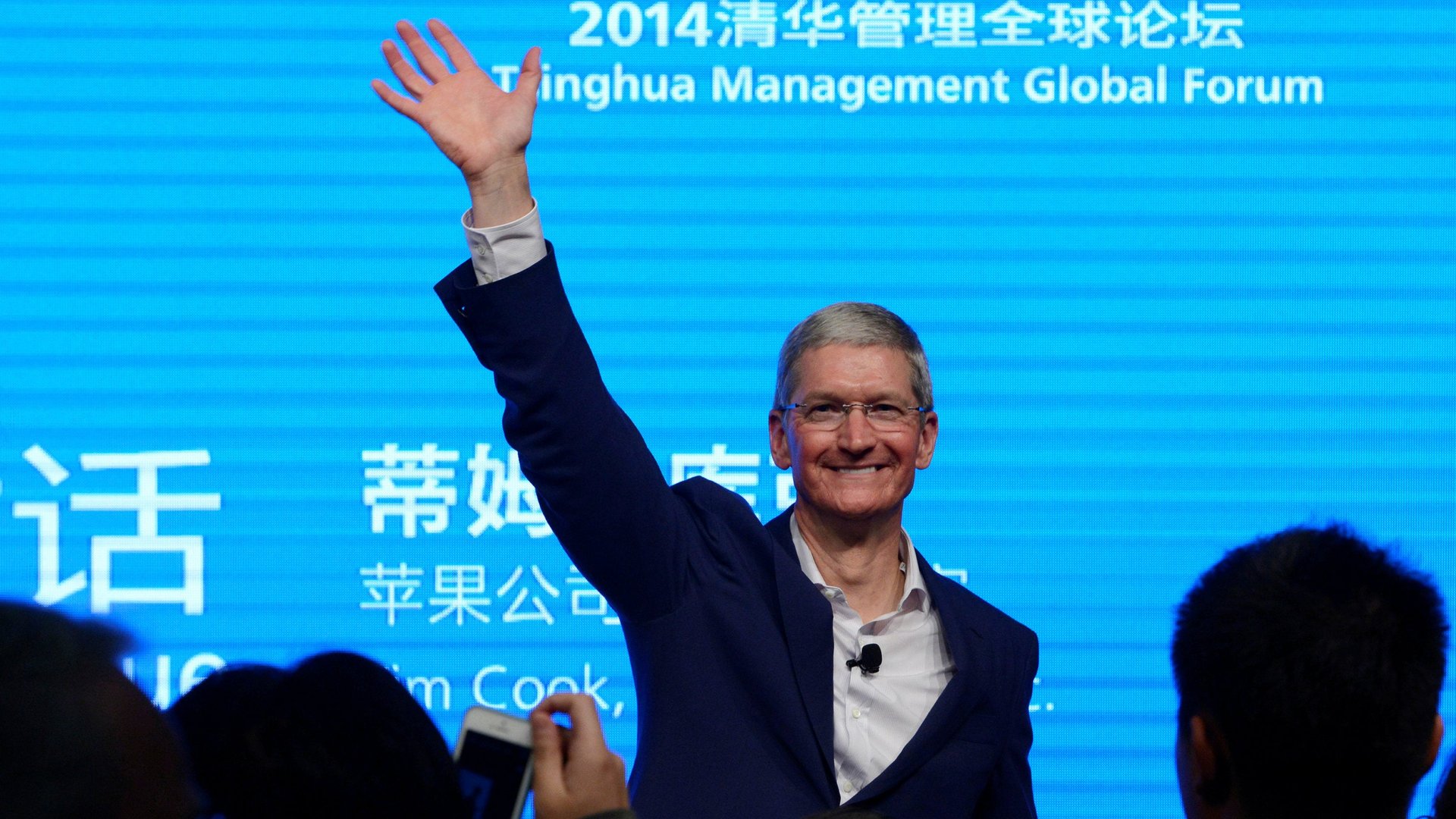Tim Cook’s tech diplomacy may prove no more effective than Jack Ma’s
On Jan. 5, Chinese state-run newspaper the People’s Daily published an op-ed berating Apple over its treatment of customers after the company admitted to deliberately slowing down the iPhone’s speed as it ages. It also issued a warning to foreign brands more generally:


On Jan. 5, Chinese state-run newspaper the People’s Daily published an op-ed berating Apple over its treatment of customers after the company admitted to deliberately slowing down the iPhone’s speed as it ages. It also issued a warning to foreign brands more generally:
…As our quality of life improves, and consumers become more rational, blindly chasing big foreign brands has already become a thing of the past. Facing this market, Western brands should uphold proper attitudes, carefully consider and satisfy in detail the needs of our consumers. If [they’re] still steeped in the old feeling of reverie, that’s arrogance and prejudice. The princess disease of certain Western brands must be cured. Poser big brands will inevitably lose the market.
The piece, while not out of character for state media, is noteworthy for its timing. It comes just days after the rejection of a bid by Chinese digital payments giant Ant Financial Services—controlled by Chinese tech mogul Jack Ma—to buy US money remitter MoneyGram. And in focusing on Apple, it appears to signal that CEO Tim Cook’s tech diplomacy in China may be set for just as much disappointment as Ma’s efforts with the US.
Cook and Ma have been among the most energetic of tech leaders in engaging with one another’s countries even as both the US and China have hardened attitudes to foreign tech companies. Just ahead of the announcement of the Ant Financial-MoneyGram deal, Jack Ma launched a charm offensive in the US—meeting Donald Trump, pledging to create 1 million jobs in the US, and later holding a conference for small businesses in Detroit.
Tim Cook, meanwhile, has visited China about a dozen times in the last five years, most recently appearing at the World Internet Conference in Wuzhen, a summit that celebrates the internet “sovereignty” approach of a country known for its heavily censored internet. His presence, the first time Apple sent its CEO since the conference started in 2014, lent the forum greater legitimacy. “The theme of this conference—developing a digital economy for openness and shared benefits—is a vision we at Apple share,” Cook said there.
Days later, at a conference in Guangzhou organized by business publication Fortune, Cook defended his attendance, as well as Apple’s removal of VPN apps from the Chinese app store earlier in the year, stating (paywall) “When you go into a country and participate in a market, you are subject to the laws and regulations of that country.” Last year, Apple announced it was opening its first data center in China, which will be overseen in part on the Chinese side by a provincial committee made up of Communist Party members, and will help the company comply with China’s new cybersecurity law.
Despite Apple’s efforts with China, its markets share is still relatively weak, as Friday’s op-ed noted. It’s the number five player there, behind four domestic brands as of the quarter ending September 2017. The People’s Daily piece also listed a series of past Apple product mishaps, like the “Bendgate” incident in 2014, and argued the latest hardware problem was a sign of the company’s arrogance and “unprofessional attitude.” Apple didn’t immediate respond immediately to request for comment.
If Ma needed goodwill in Washington, both for the Ant bid, and to help defend his US-listed business against frequent accusations from US firms that counterfeits proliferate on Alibaba’s platforms, Apple needs the support of Chinese government in China to ensure its products can get manufactured there. For sales too, it needs to be on the good side of the government as all of China’s carrier-vendors are state-owned.
But if the US government continues to crack down on Chinese investment stateside, American companies that have invested deeply in China—like Apple—could bear the brunt of retaliation.